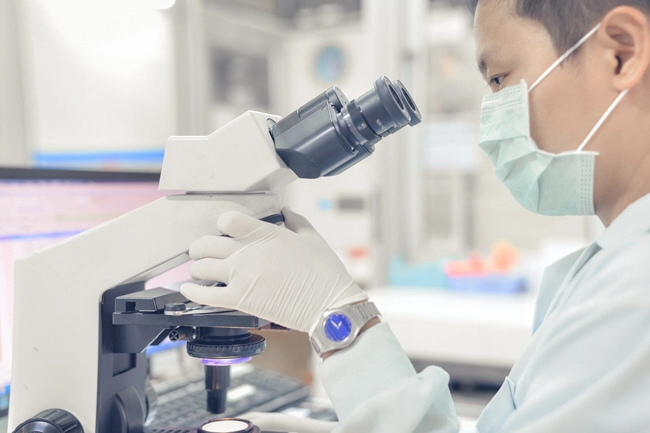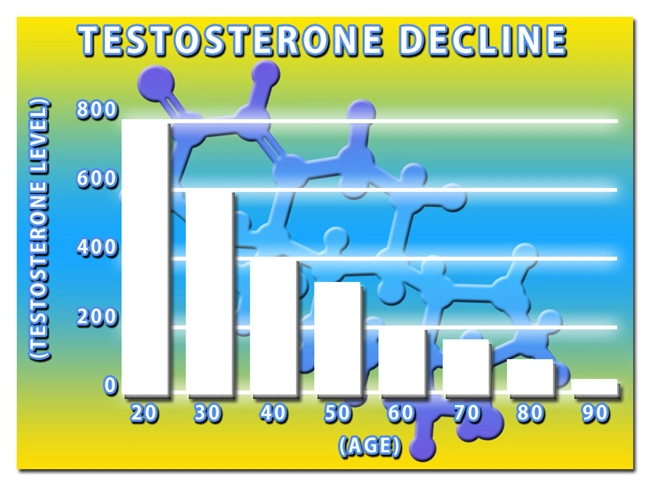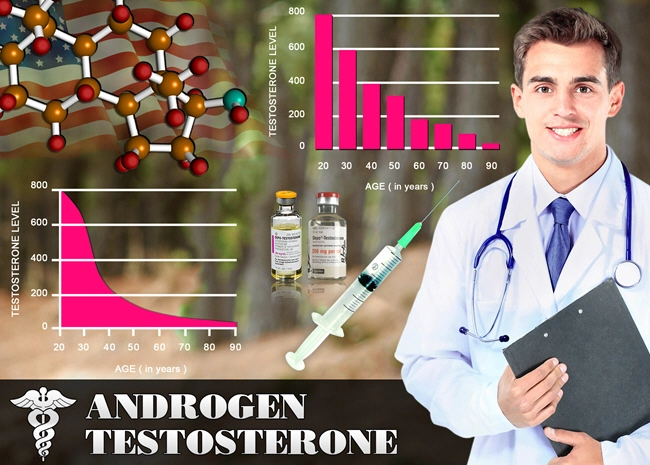
A new study confirms:
Testosterone Replacement Therapy is safe!
You have probably heard that Testosterone Replacement Therapy (TRT) is risky for older men. Many law firms have run advertisements along the line of this:
Attention men! If you were prescribed testosterone therapy and later suffered a heart attack or stroke, this message is for you! Many research studies have determined that prescription testosterone increases the risk of heart attacks and strokes. If you have used any type of testosterone, such as pellets, gels, or  injections, and then suffered a stroke or heart attack, call the law firm of XXXXXXX at (XXX)-XXX-XXXX. The manufacturer may be liable, and you may be entitled to substantial compensation. CALL NOW and get the compensation you deserve!
injections, and then suffered a stroke or heart attack, call the law firm of XXXXXXX at (XXX)-XXX-XXXX. The manufacturer may be liable, and you may be entitled to substantial compensation. CALL NOW and get the compensation you deserve!
How about the Food and Drug Administration (FDA) warnings on testosterone packages: “Reported serious adverse outcomes include heart attack, heart failure, stroke, depression, hostility, aggression, liver toxicity, and male infertility.” That sounds pretty serious.
But is it true that testosterone is a killer in disguise? A wolf in sheep’s clothing? A precursor to deadly, debilitating heart attacks and strokes?
Or is this merely fear-mongering from ambulance-chasing attorneys looking for a quick payday and over-zealous, unelected government bureaucrats that take joy in exercising God-like power over all aspects of our lives?
To answer those questions, we need to put emotion and hyperbole aside, look at the facts and conclusions of recent research, and see what the science says.
A recent study by researchers at the University of Aberdeen in the United Kingdom searched publication databases through August 2018 for randomized controlled trials among patients with testosterone levels of 12 nmol/L or less who had been on TRT for at least 3 months. The mean TRT duration for all study participants was 9.5 months.
The goal of this study was to “provide the most extensive individual participant dataset (IPD) of testosterone trials available, to analyze subtypes of all cardiovascular events observed during treatment, and to investigate the effect of incorporating data from trials that did not provide IPD” said Jemma Hudson, one of the leading researchers of the 37-member team.
The study was extensive, as Hudson promised. The team initially looked at 9,871 studies. After omitting irrelevant studies and duplicates, 225 studies were left. The team then further narrowed the studies to 35. The number of subjects was 5,601 men with a mean age of 65, and the mean Body Mass Index (BMI, a calculated number of pounds divided by height to measure obesity) was 35, which means that some of the men were a bit rotund. Several of them were diabetic, and others had experienced cardiovascular disease.
After rigorously delving through the data, the team's conclusion was clear: They found no evidence that TRT increased the risk of short-term to the medium-term risk of heart attack or stroke in men treated with testosterone for low testosterone (aka “Low-T).
Here are the specifics of the study’s findings:
- No significant elevation of blood pressure, glucose sensitivity, or A1C (a measure of average blood sugar over the previous three months) between the groups.
- Both serum total cholesterol and triglycerides were significantly lower in the testosterone groups.
- The cardiovascular and cerebrovascular (lower brain blood flow) data found that the testosterone subjects reported slightly more (120) deaths than the placebo group (110), but not of statistical significance. Later sensitivity analyses (examining how changes in methods, models, or values of unmeasured variables affected results) found that the risk of cardiovascular or cardio cerebral events was lower after testosterone levels were normalized.
- The testosterone group reported fewer deaths from all causes than the placebo group but, again, not of statistical significance.
- Hemoglobin and hematocrit were higher in the testosterone groups, and the number was statistically relevant. This is not surprising since TRT squelches hepcidin, a hormone produced by the liver that regulates iron levels, and iron levels directly impact red blood cell production. However, only 5 cases of deep-vein thrombosis occurred in the testosterone groups, compared to 7 in the placebo group.
- Most importantly, there was no difference in the groups concerning the development of prostate cancer.
The team weighs in on the results of the study.
Here is the research group statement: "The most frequently recorded cardiovascular event categories in the identified trials were arrhythmia, coronary heart disease, heart failure, cerebrovascular events, and myocardial infarction. We have also identified and reported frequencies of stable angina, peripheral vascular  disease, aortic aneurysm, and aortic dissection, which have not been reported by any previous meta-analysis. None of the cardiovascular event subtypes were significantly more common in patients assigned to testosterone treatment than in patients assigned to placebo.”
disease, aortic aneurysm, and aortic dissection, which have not been reported by any previous meta-analysis. None of the cardiovascular event subtypes were significantly more common in patients assigned to testosterone treatment than in patients assigned to placebo.”
“We have conducted the most comprehensive study to date investigating the safety of testosterone treatment of hypogonadism. Testosterone treatment did not increase cardiovascular event risk in the short term to medium term.”
These findings were published in The Lancet Healthy Longevity.
This study was one of the most comprehensive examinations of the effects of TRT. The results speak loudly: When undertaken with proper medical supervision, a Testosterone Replacement Therapy treatment regimen can deliver the benefits it promises.
Contrary to the hysterical warnings about TRT causing heart attacks and strokes, testosterone may exhibit “reverse causality” by lowering the risk of cardiovascular events instead of raising them!
More critical, TRT is safe! Notice the last sentence in the final statement of the team: “...Testosterone treatment did not increase cardiovascular event risk in the short term to medium term.”
Contact us for a FREE, no-obligation of the incredible benefits of Testosterone Replacement Therapy (TRT)!
Hudson J, Cruickshank M, Quinton R, et al. Adverse cardiovascular events and mortality in men during testosterone treatment: an individual patient and aggregate data meta-analysis. Lancet Healthy Longev. Published online June 1, 2022. doi:10.1016/S2666-7568(22)00096-4
Contact Us Today For A Free Consultation
Dear Patient,
Once you have completing the above contact form, for security purposes and confirmation, please confirm your information by calling us.
Please call now: 1-800-380-5339.
Welcoming You To Our Clinic, Professor Tom Henderson.

- Injectable HGH Prescriptions: Blood Testing Centers in Philadelphia, Pennsylvania [Last Updated On: August 27th, 2025] [Originally Added On: March 3rd, 2019]
- Nutropin Hgh: Hgh Hormone Product [Last Updated On: December 21st, 2024] [Originally Added On: March 10th, 2020]
- Hgh Replacement [Last Updated On: December 21st, 2024] [Originally Added On: March 14th, 2020]
- Hgh Therapy [Last Updated On: December 22nd, 2024] [Originally Added On: March 15th, 2020]
- Anti-ageing Clinics Distribute Human Growth Hormone [Last Updated On: December 25th, 2024] [Originally Added On: March 16th, 2020]
- Hgh In Forefront To Remain Young [Last Updated On: November 25th, 2024] [Originally Added On: March 18th, 2020]
- Benefits Of Hgh: Thierry Hertoghe [Last Updated On: December 23rd, 2024] [Originally Added On: April 23rd, 2020]
- Getting Started With An Hgh Program [Last Updated On: December 24th, 2024] [Originally Added On: April 25th, 2020]
- Hgh Releasers [Last Updated On: December 25th, 2024] [Originally Added On: April 26th, 2020]
- What dietary considerations should I make while on HRT, hormone replacement therapy? [Last Updated On: December 20th, 2024] [Originally Added On: May 1st, 2020]
- Hgh Dosage [Last Updated On: March 3rd, 2025] [Originally Added On: May 5th, 2020]
- Hgh Deficiency [Last Updated On: December 23rd, 2024] [Originally Added On: May 6th, 2020]
- Hgh Products Genotropin Humantrope Nutropin Saizen Serostim Omnitrope [Last Updated On: November 25th, 2024] [Originally Added On: May 8th, 2020]
- What Is Injectable Hgh Human Growth Hormone? [Last Updated On: December 22nd, 2024] [Originally Added On: May 9th, 2020]
- Introduction To Human Growth Hormone HGH [Last Updated On: December 24th, 2024] [Originally Added On: May 10th, 2020]
- Omnitrope Injections for the Treatment of HGH Deficiency [Last Updated On: June 15th, 2025] [Originally Added On: May 6th, 2021]
- Sleep To Amplify Human Growth Hormone Levels [Last Updated On: June 14th, 2025] [Originally Added On: May 27th, 2021]
- Buying Hgh Hormone Human Growth Hormone [Last Updated On: August 20th, 2025] [Originally Added On: February 22nd, 2022]
- Hgh For Menopause [Last Updated On: October 28th, 2025] [Originally Added On: February 23rd, 2022]
- Your HGH Levels [Last Updated On: October 5th, 2025] [Originally Added On: February 24th, 2022]
- Related Glossary of Terms [Last Updated On: October 14th, 2024] [Originally Added On: February 25th, 2022]
- Hgh Facts - Information About Growth Hormone [Last Updated On: August 21st, 2025] [Originally Added On: February 26th, 2022]
- Hgh Sports And Baseball [Last Updated On: August 22nd, 2025] [Originally Added On: February 27th, 2022]
- Us Olympic Committee And Talk Of Hgh [Last Updated On: October 30th, 2025] [Originally Added On: February 28th, 2022]
- Braves' Schafer Talks About His Suspension Over Hgh [Last Updated On: August 23rd, 2025] [Originally Added On: March 1st, 2022]
- Hgh Scams: Different Hgh Scams And Things To Watch For Online [Last Updated On: August 27th, 2025] [Originally Added On: March 2nd, 2022]
- Nordiflex HGH Injection Device Information [Last Updated On: October 31st, 2025] [Originally Added On: March 3rd, 2022]
- Genotropin Hgh Detailed Description [Last Updated On: October 15th, 2024] [Originally Added On: March 4th, 2022]
- Saizen Hgh Detailed Description [Last Updated On: October 17th, 2024] [Originally Added On: March 6th, 2022]
- Genotropin HGH: Human Growth Hormone Product [Last Updated On: August 24th, 2025] [Originally Added On: March 6th, 2022]
- Omnitrope Hgh: Human Growth Hormone Product Called Omnitrope. [Last Updated On: October 5th, 2024] [Originally Added On: March 7th, 2022]
- Nutropin Hgh Detailed Description [Last Updated On: November 3rd, 2025] [Originally Added On: March 8th, 2022]
- Saizen Hgh: Injectable Hgh Product [Last Updated On: August 25th, 2025] [Originally Added On: March 9th, 2022]
- Hgh Product Serostim [Last Updated On: August 26th, 2025] [Originally Added On: March 11th, 2022]
- HGH Scams (HGH Supplements) [Last Updated On: November 12th, 2024] [Originally Added On: March 20th, 2022]
- Side Effects Of HGH [Last Updated On: September 3rd, 2025] [Originally Added On: March 21st, 2022]
- Testimonial: Walter’s HGH Story [Last Updated On: September 28th, 2025] [Originally Added On: June 4th, 2022]
- HGH Is the “God Particle” [Last Updated On: September 17th, 2025] [Originally Added On: July 26th, 2022]
- Low testosterone in men might increase the risk of severe COVID [Last Updated On: October 21st, 2025] [Originally Added On: September 6th, 2022]
- Can I Reverse the Aging Process with HGH? [Last Updated On: September 19th, 2025] [Originally Added On: September 21st, 2022]
- HGH Therapy – How Can I Know Who Is Legitimate? [Last Updated On: June 7th, 2025] [Originally Added On: January 10th, 2023]
- The Evolution of Testosterone Replacement Therapy for men with Prostate Cancer [Last Updated On: June 2nd, 2025] [Originally Added On: January 12th, 2023]
- Nine Hormones that Can Impact Your Weight and How to Promote Hormone Balance [Last Updated On: June 6th, 2025] [Originally Added On: January 26th, 2023]
- Get Tested for Hormone Levels, even if You Have No Symptoms [Last Updated On: September 29th, 2025] [Originally Added On: March 17th, 2023]
- Can Head Injuries Cause HGH Deficiency? [Last Updated On: September 26th, 2025] [Originally Added On: May 17th, 2023]
- Mountain Biker Thought his Life Was Over [Last Updated On: September 15th, 2025] [Originally Added On: May 25th, 2023]
- Do HGH Booster Supplements Work Faster Than Prescriptions? [Last Updated On: October 1st, 2025] [Originally Added On: June 3rd, 2023]
- HGH and It’s Effects on Other Hormones [Last Updated On: October 26th, 2024] [Originally Added On: June 10th, 2023]
- Maintaining a Proper Medication Schedule [Last Updated On: November 24th, 2024] [Originally Added On: August 23rd, 2023]
- What is the History of the Discovery of HGH? [Last Updated On: October 21st, 2024] [Originally Added On: September 17th, 2023]
- Don’t Let Fear Stop You From Fixing Your Hormones [Last Updated On: October 22nd, 2024] [Originally Added On: September 22nd, 2023]
- Understanding HGH Dosage [Last Updated On: February 26th, 2025] [Originally Added On: February 26th, 2025]








